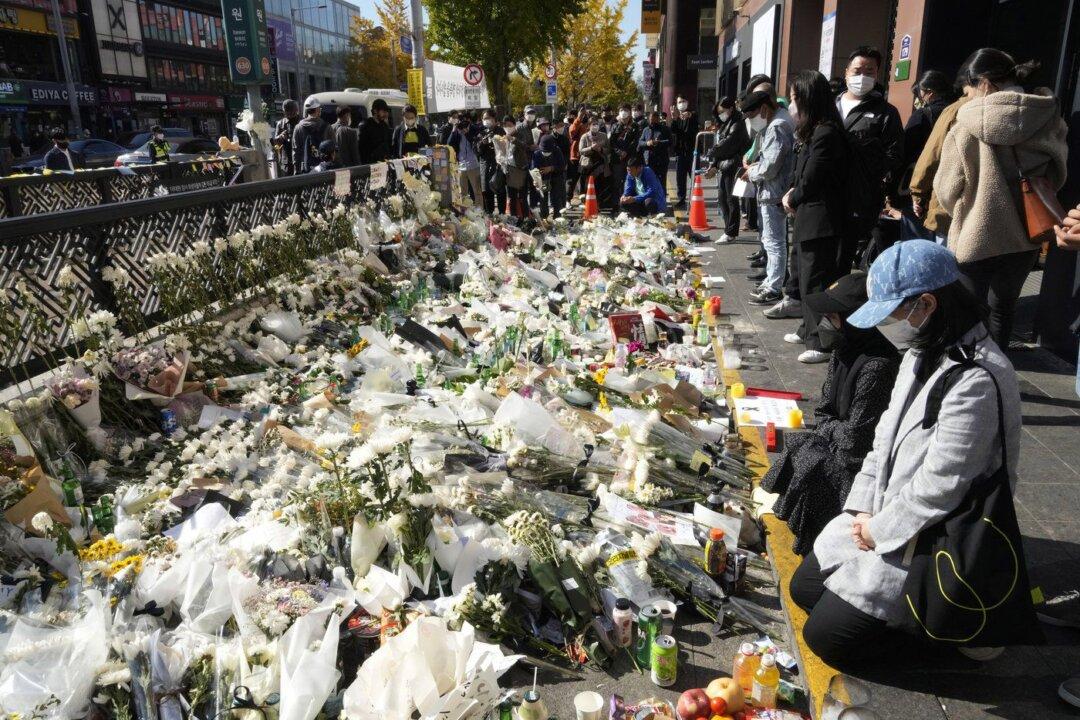A Canadian in Seoul says he’s had trouble sleeping since witnessing tens of thousands of people crowding into side streets and alleys in the city’s nightclub district on Saturday, a scenario that led to the crushing death of more than 150 people.
Matthew Clement said he avoided the narrowest streets in Itaewon on Halloween after experiencing dense throngs of people in previous years that made him fear for his life.





